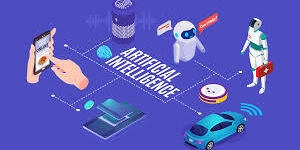Dev
1d
208

Image Credit: Dev
Living with AI: How It's Changing the Way We Live
- Artificial Intelligence (AI) has evolved from theory to real-world application, impacting daily life through technologies, business decisions, and government services.
- AI simulates human intelligence, enabling functions like learning from data, understanding language, recognizing images, making decisions, and problem-solving for increasing efficiency and safety.
- Smartphones utilize AI for virtual assistants, photography enhancements, language translation, and battery optimization, tailoring user experiences and learning preferences.
- Smart homes leverage AI for personalized temperature control, security systems, and robotic vacuum cleaners, enhancing energy efficiency and accessibility.
- AI revolutionizes transportation with ride-sharing apps, navigation tools, and autonomous vehicle features, improving efficiency and safety in travel.
- In healthcare, AI aids in medical image analysis, preventive care through wearable devices, accurate diagnosis with tools like IBM Watson, and overall quality of life improvement.
- AI applications in the workplace include chatbots for customer service, data analysis for informed decisions, and optimization in marketing and finance, enhancing human performance rather than replacing jobs.
- Education benefits from AI through personalized learning platforms, progress tracking, and tools for detecting plagiarism, enabling customized learning experiences for students.
- Entertainment platforms like Netflix and Spotify use AI for personalized recommendations, though concerns about bias, job displacement, and data privacy highlight the importance of ethical AI development.
- As AI integrates further into society, addressing issues of bias, job displacement, and data privacy is crucial for ensuring transparency, fairness, and accountability in AI development.
- AI's broad impact necessitates staying informed, promoting ethical use, and recognizing its role as a transformative force in society, shaping the future with responsible adoption.
Read Full Article
12 Likes
For uninterrupted reading, download the app